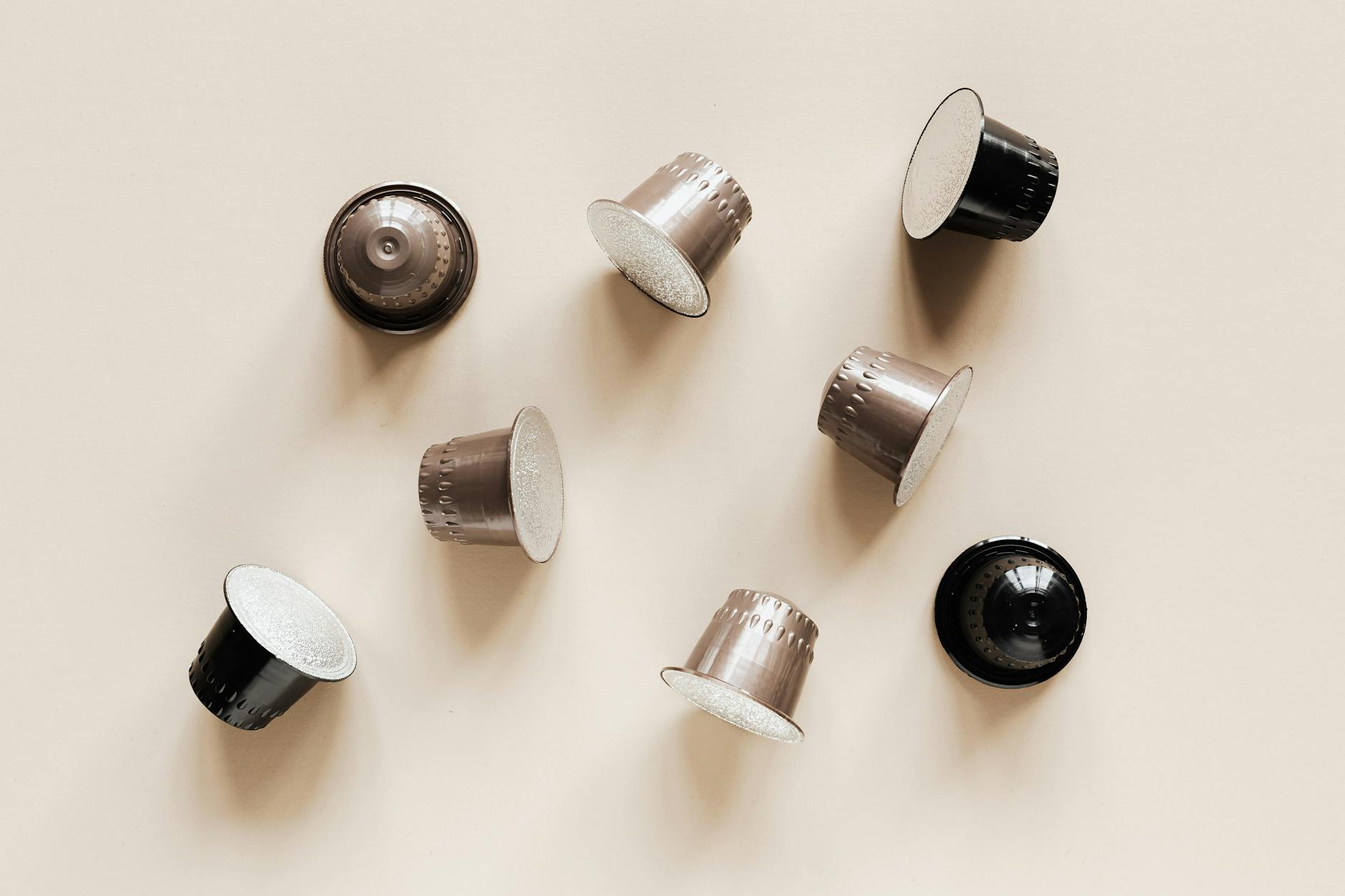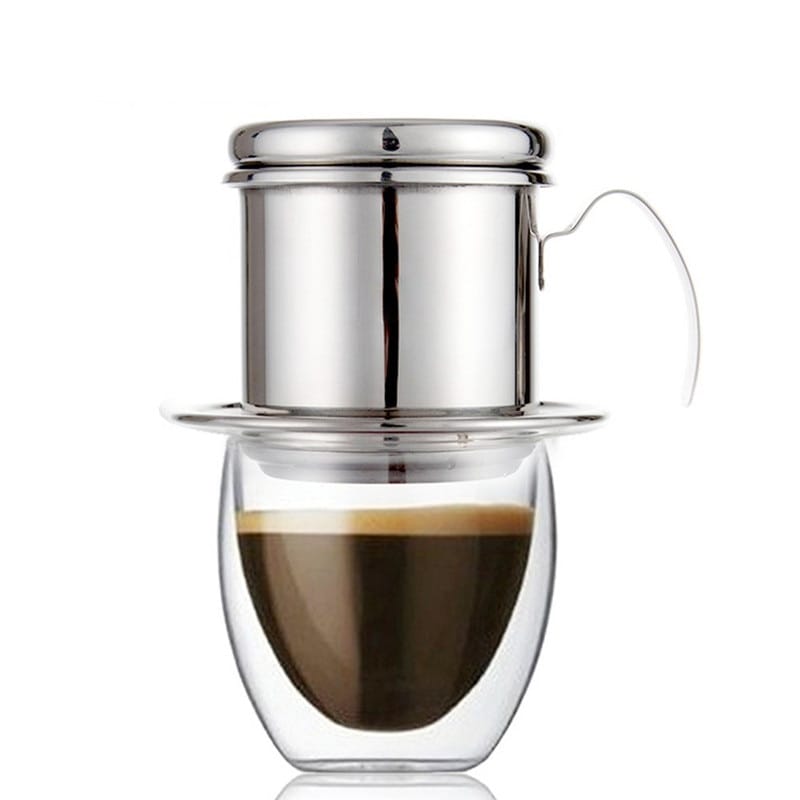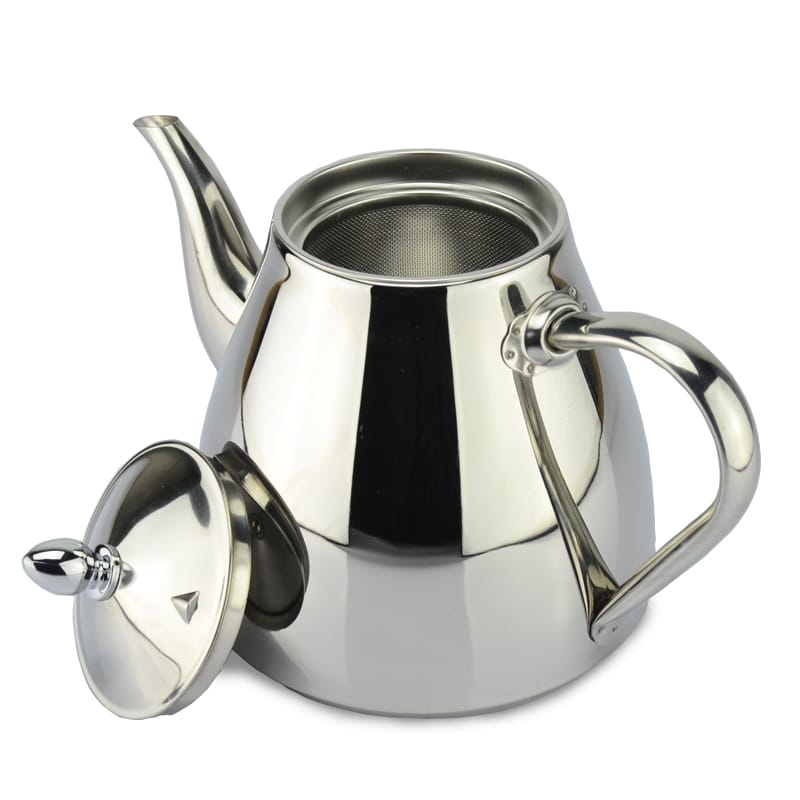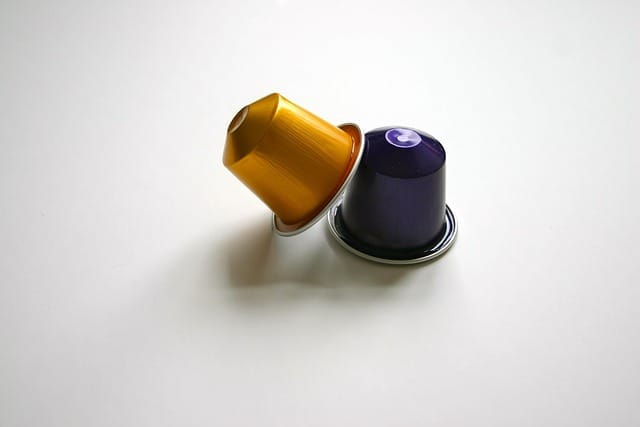You probably know the small coffee capsules you put into a slick-designed machine that brews a luxury cup.
But are these capsules bad for your health? Let’s dive in and explore the potential risks of aluminium-based coffee capsules.

What Are Aluminium-Based Coffee Capsules?
Aluminium coffee capsules are popular for their convenience and style.
They’re made of aluminium and have a thin layer of plastic inside.
They keep coffee fresh and are easy to use. But there are health concerns you should know about.
Health Risks of Aluminium Exposure
Aluminium is a metal found in many everyday items. But too much exposure can be harmful. Here are some reasons why:
1. Possible Toxicity
Consuming too much aluminium over time can lead to toxicity. This can affect your kidneys and brain.
This is more concerning for people with existing health issues.
2. Neurodegenerative Diseases
Studies suggest a link between aluminium exposure and diseases like Alzheimer’s. Although more research is needed, it’s wise to be cautious.
3. Digestive Issues
Your body can absorb aluminium through your digestive system. This can cause digestive problems and irritation.
Plastics and Chemicals
It’s not just the aluminium that’s worrying.
The plastic lining inside the capsules can also pose risks. When heated, this plastic can release chemicals into your coffee.
These chemicals can be harmful if consumed regularly.
Safer Alternatives
To avoid these risks, consider switching to safer options:
Stainless Steel Capsules
Reusable and free from harmful chemicals.
Biodegradable Capsules
Made from plant-based materials, they’re better for your health and the environment.
We are trying our best to add biodegradable coffee capsules to our store soon!
Are you a supplier offering such products and looking to increase sales through partner channels? Feel welcome to get in touch with us to discuss a potential ( and fair) collaboration.
Traditional Coffee Methods
Go back to basics with a French press or drip coffee maker. They don’t involve any capsules.
Easy 1-Cup Coffee Brewing
You only need hot water..ready to go!


For More Than Just 1 Cup of Coffee
Stainless steel coffee can with filter.
The Rise of Coffee Capsules
In recent years, coffee capsules have revolutionized the way many people enjoy their daily brew.
These convenient, single-serve pods have become increasingly popular, offering a quick and easy way to make a consistently good cup of coffee at home or in the office.
However, as their popularity has grown, so too have concerns about their potential health impacts, particularly those made from aluminium.
This article will explore the potential health effects of aluminium-based coffee capsules and provide you with the information you need to make an informed decision about your coffee consumption.
Understanding Aluminum Coffee Capsules
Aluminium coffee capsules are small, single-serve containers that hold pre-measured amounts of ground coffee.
These capsules are designed to be used with specific coffee machines, which puncture the capsule and force hot water through it to brew a cup of coffee.
The use of aluminium in these capsules is primarily due to its lightweight nature, ability to preserve coffee freshness and recyclability.
However, the potential for aluminium to leach into the brewed coffee has raised concerns among health-conscious consumers.
The Science Behind Aluminum Exposure
To understand the potential health effects of aluminium coffee capsules, it’s essential to first examine the science behind aluminium exposure.
Aluminum is the third most abundant element in the Earth’s crust and is naturally present in our environment, including in the foods we eat and the water we drink.
While our bodies can handle small amounts of aluminium, excessive exposure has been linked to various health concerns.
According to a study published in the Journal of Toxicology and Environmental Health (Exley, 2013), chronic aluminium exposure has been associated with neurotoxicity and may contribute to the development of neurodegenerative diseases such as Alzheimer’s.
However, it’s important to note that the relationship between aluminium exposure and these health conditions is complex and not fully understood.

Aluminum Leaching from Coffee Capsules
One of the primary concerns regarding aluminium coffee capsules is the potential for aluminium to leach into the brewed coffee.
A study conducted by Windisch et al. (2022) and published in the journal Food Chemistry investigated the aluminium content in coffee brewed using various methods, including aluminium capsules.
The researchers found that while aluminium capsules did contribute to a slight increase in the aluminium content of the brewed coffee, the levels were still well below the tolerable weekly intake established by the European Food Safety Authority.
Moreover, the study noted that the use of aluminium moka pots resulted in higher aluminium concentrations in the coffee compared to capsules.
This suggests that the aluminium content in coffee may be more influenced by the brewing method than the use of aluminium capsules alone.
Protective Measures in Aluminum Capsules
It’s worth noting that manufacturers of aluminium coffee capsules have implemented measures to minimize the potential for aluminium leaching.
Many capsules are lined with a food-grade lacquer or coating that acts as a barrier between the coffee and the aluminium.
This protective layer helps to prevent direct contact between the coffee and the aluminium, reducing the risk of leaching.
A study by Galazzi et al. (2021) published in Food Control examined the migration of aluminium from metallic seals in coffee pods and found that the use of protective coatings effectively minimized aluminium migration.
The researchers concluded that the coffee drink prepared using these pods did not represent a serious risk for aluminium intake.
Comparing Aluminum Capsules to Other Coffee Brewing Methods
When considering the potential health effects of aluminium coffee capsules, it’s important to put them in context with other coffee brewing methods.
Traditional brewing methods, such as using a French press or drip coffee maker, may expose you to higher levels of cafestol and kahweol, compounds found in coffee oil that have been linked to increased cholesterol levels (Urgert and Katan, 1997).
In contrast, the paper filters used in many coffee machines, including those that use capsules, can effectively remove these compounds, potentially offering a health benefit.
Additionally, the precise portion control offered by coffee capsules may help consumers moderate their caffeine intake, which can have positive health implications.
Environmental Considerations
While the focus of this article is on health effects, it’s worth briefly touching on the environmental impact of aluminium coffee capsules.
The production and disposal of single-use capsules have raised concerns about waste and sustainability.
However, many manufacturers have implemented recycling programs for their aluminium capsules, which can help mitigate some of these environmental concerns.
When properly recycled, aluminium can be reused indefinitely without losing quality, making it a more sustainable option compared to plastic capsules.
Alternatives to Aluminum Capsules
For those who remain concerned about aluminium exposure, there are alternatives available.
Some manufacturers offer capsules made from other materials, such as stainless steel or biodegradable plastics.
These alternatives may provide similar convenience while addressing concerns about aluminium exposure.
However, it’s important to note that each alternative comes with its own set of considerations, both in terms of health effects and environmental impact.
Moderation & Balance in Coffee Capsule Use
As with many aspects of our diet, moderation is key when it comes to coffee consumption, regardless of the brewing method.
The health benefits of coffee, including its high antioxidant content and potential protective effects against certain diseases, are well-documented (Poole et al., 2017).
However, excessive caffeine intake can lead to negative health effects, such as increased anxiety and disrupted sleep patterns.
Therefore, it’s important to consider your overall coffee consumption habits rather than focusing solely on the type of capsules you use.
Expert Opinions and Recommendations
Many health organizations and regulatory bodies have weighed in on the safety of aluminium coffee capsules.
The European Food Safety Authority (EFSA) has established a tolerable weekly intake of aluminium, which takes into account various sources of exposure, including food and beverages.
According to the EFSA, the aluminium exposure from coffee capsules falls well below this threshold for the average consumer (EFSA, 2008).
Similarly, the U.S. Food and Drug Administration (FDA) regulates the use of aluminium in food contact materials and has not raised specific concerns about aluminium coffee capsules.
However, they continue to monitor research in this area and update their guidelines as new information becomes available.
Making an Informed Decision When Buying Coffee Capsules
When deciding whether to use aluminium coffee capsules, it’s important to consider the available scientific evidence, your personal health concerns, and your overall coffee consumption habits.
While current research suggests that the aluminium exposure from coffee capsules is unlikely to pose significant health risks for most people, those with specific health conditions or concerns may wish to consult with their healthcare provider.
Additionally, considering factors such as taste preference, convenience, cost, and environmental impact can help you make a decision that aligns with your values and lifestyle.
Conclusion
While aluminium-based coffee capsules are convenient, they pose potential health risks (Isac-Torrente, Fernandez-Gomez and Miguel, 2020).
The possible toxicity, impact on the brain, and digestive issues are concerns you should not ignore. Opt for safer alternatives to enjoy your coffee without compromising your health.
By staying informed, you can make choices that are better for your well-being. Enjoy your coffee, but drink wisely!
The convenience and consistency offered by coffee capsules have made them a popular choice for many coffee lovers, and when used in moderation, they can be part of a healthy lifestyle.
However, as with any dietary choice, it’s important to stay informed about the latest research and make decisions based on your individual health needs and preferences.
By considering the information presented in this article and consulting with healthcare professionals when necessary, you can enjoy your daily cup of coffee with greater peace of mind.
Remember, the joy of coffee extends beyond the brewing method – it’s about savouring the flavours, embracing the ritual, and enjoying the social aspects of this beloved beverage.
Whether you choose aluminium capsules, traditional brewing methods, or alternatives, the most important thing is to find a coffee experience that satisfies you and fits into your overall healthy lifestyle.
References
Exley, C. (2013) ‘Human exposure to aluminium’, Environmental Science: Processes & Impacts, 15(10), pp. 1807-1816.
European Food Safety Authority (EFSA) (2008) ‘Safety of aluminium from dietary intake’, EFSA Journal, 754, pp. 1-34.
Galazzi, R.M. et al. (2021) ‘Evaluation of the aluminum migration from metallic seals to coffee beverage after using a high-pressure coffee pod machine’, Food Control, 120, p. 107562.
Poole, R. et al. (2017) ‘Coffee consumption and health: umbrella review of meta-analyses of multiple health outcomes’, BMJ, 359, p. j5024.
Urgert, R. and Katan, M.B. (1997) ‘The cholesterol-raising factor from coffee beans’, Annual Review of Nutrition, 17, pp. 305-324.
Windisch, J., Keppler, B.K. and Jirsa, F. (2022) ‘Aluminum in Coffee’, Foods, 11(4), p. 594.
Citations
[1] https://www.ncbi.nlm.nih.gov/pmc/articles/PMC7331030/
[2] https://www.sciencedirect.com/science/article/abs/pii/S0889157521003318
[3] https://halo.coffee/blogs/blog/aluminium-coffee-pods-the-impact-on-the-environment
[4] https://www.reddit.com/r/nespresso/comments/ijjkq6/anyone_worry_about_aluminum_exposure/
[5] https://katherinemaslen.com/the-coffee-pod-debarcle/
[6] https://en.wikipedia.org/wiki/Decaffeination
[7] https://www.coffeedetective.com/are-nespresso-capsules-safe.html
[8] https://www.peterjthomson.com/coffee/flat-white-coffee-origins/

